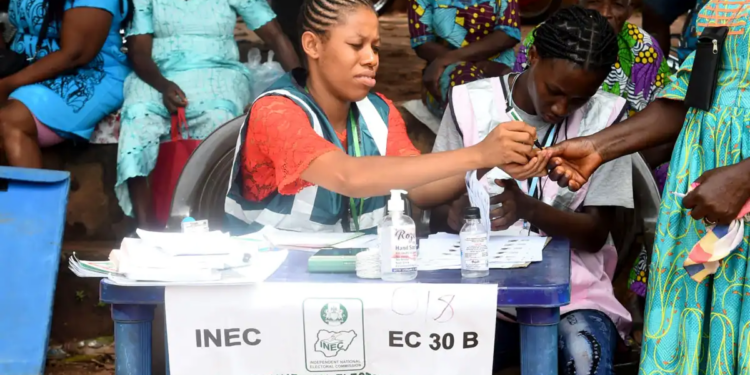Nigerians again go to the polls tomorrow, Saturday 18, 2023, in the second tranche of the 2023 general elections, this time to elect those who will run governance at the state level. The election had been scheduled for March 11, 2023, but the Independent National Electoral Commission (INEC) postponed it to this weekend in order to reconfigure the Bimodal Voter Accreditation System (BVAS) machines following the conclusion of the February 25 presidential election, to attune them to the state-level election. On the ballot are those contesting to be governors in 28 states and state lawmakers in the 36 states of the federation. No election is slated for the Federal Capital Territory (FCT), Abuja, as chairmanship and council polls had earlier been held in February last year.
Unlike in the February 25, 2023 presidential poll in which elections were conducted in only 469 federal constituencies, in tomorrow’s election, 837 governorship candidates will face off in the 28 states, while 10,240 others will battle for 993 State Assembly seats across the country, so the task before INEC is huge and, therefore, poses more challenges in terms of logistics and general organisation. Therefore, it behooves on INEC to gird its loins more tautly and get its acts together to deliver better than in the last presidential and National Assembly elections on February 25, 2023.
In the last election, most of the INEC officials failed to arrive at the polling stations on time, or did not show up at all, or they arrived without the requisite electoral materials. These factors contributed to frustrating voters, leading to low figures of votes cast in the election. The about 28.6 percent voter turnout is the lowest in the country’s history. Also, some of them are believed to have aided in manipulating the elections in some states of the federation. Hence, the INEC top echelon need to monitor the conduct of its electoral officers, especially the Resident Electoral Commissioners and the state collation officers, to ascertain whether there is any truth in the allegations of opposition parties that they had been compromised by the incumbent governors.
Election Petition: Why I Withdrew My Motion – Atiku
The electoral body also has an opportunity to redeem its image before Nigerians and the international community by the way it deploys the Bimodal Voter Accreditation System (BVAS) to conduct the state-level elections and upload results directly from the polling units to its IReV portal. It must not, like it did in the February 25 presidential election, accept manual collation of election results by its field officers – which was a major sticking point in that poll, with many doubting INEC’s explanation that it experienced technical glitches in uploading the results to its portal.
For the Saturday polls to record significant improvement over the previous one, the security agencies need to up their game. As was noticed in the presidential election, there were several incidents of voter intimidation, of hoodlums attacking voters and snatching election materials and generally disrupting the voting process. And following the upsets recorded by opposition parties in the last election and, expectedly, the desperation of politicians to regain their political bases, it is clear as day that many political actors will try to use force and the power of incumbency to thwart free and fair elections. This is where the security agencies, led by the police, need to stand their ground and ensure that the Nigerian electorate is allowed to make their political choices in a safe and secure environment.
As a newspaper, we call upon the two statutory bodies, INEC and security agencies, to set high standards for their officials in this election and to ensure that they follow laid-down codes of conduct. The leadership of these agencies must transmit their willingness to apply strict disciplinary measures against any of its officials who fail in the line of duty.
Finally, we call on the political actors, both candidates and their supporters, to heed INEC chairman, Professor Mahmood Yakubu’s advice – that electoral contest is not a do-or-die matter – and play by the rules. If the candidates are genuinely seeking the mandate of the people to serve them diligently, there is no way they would try to win by hook or crook.
After the last presidential election, many local and international election observers scored the exercise as falling short of expectations. This time around, we expect the opposite.



